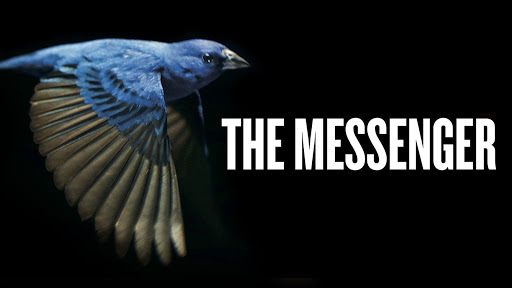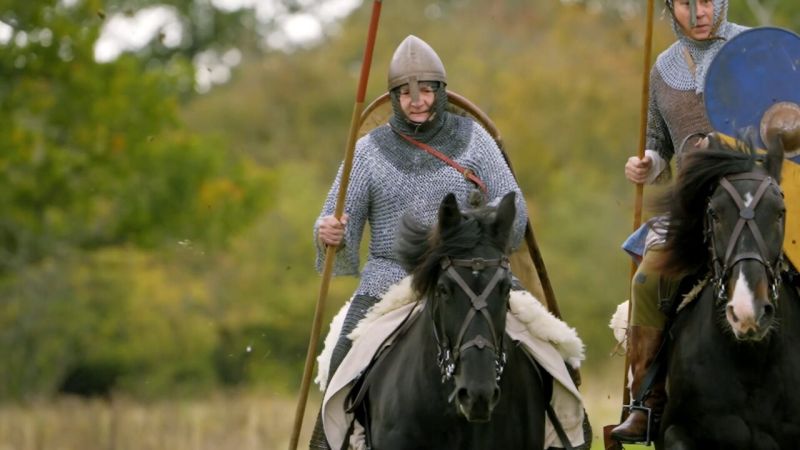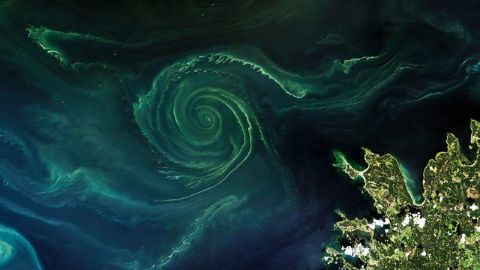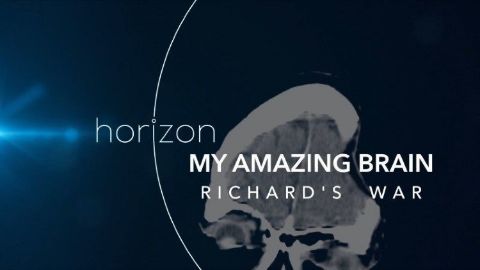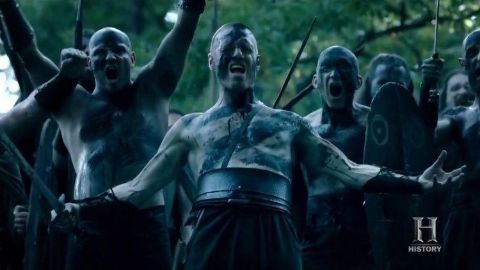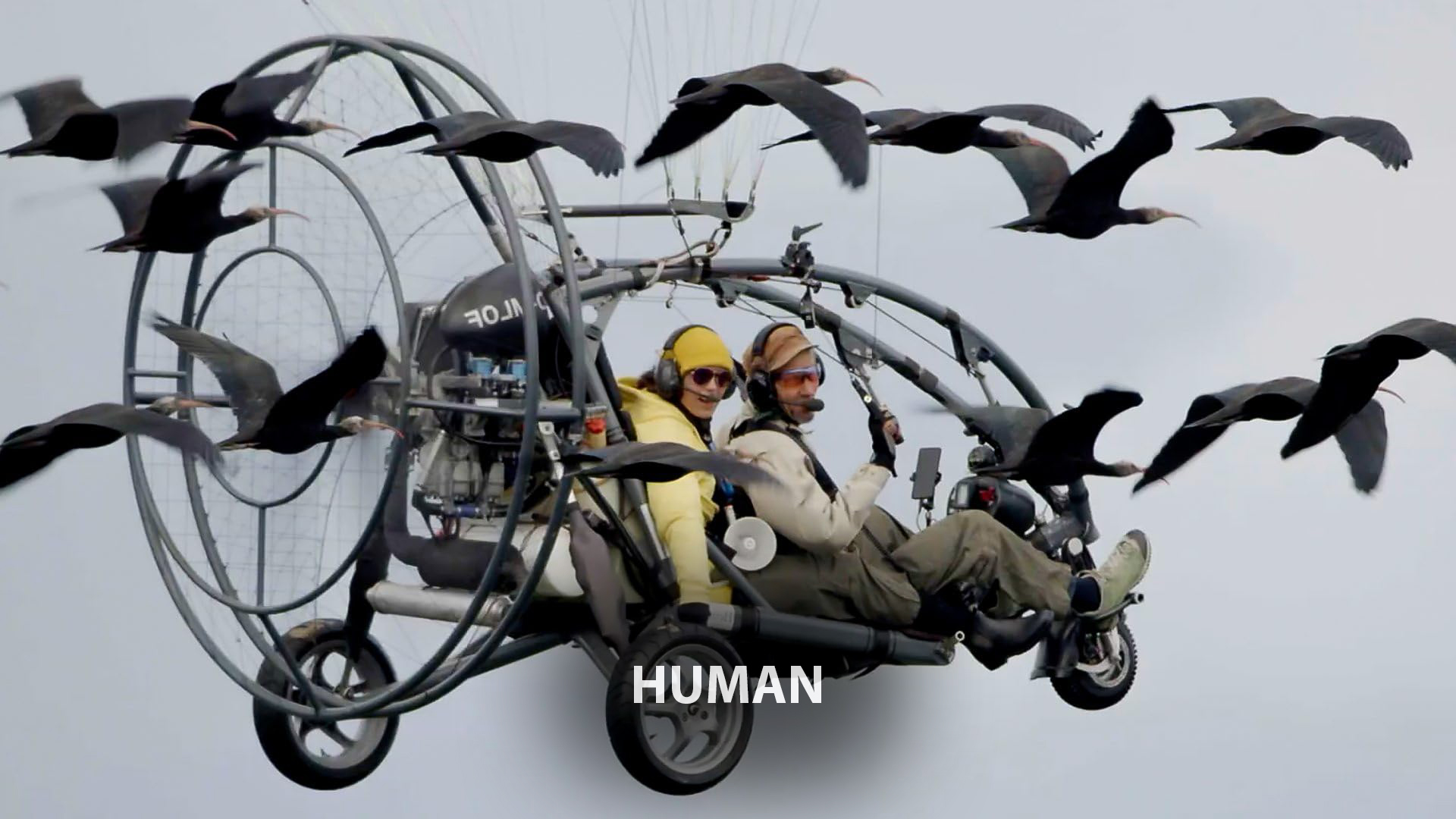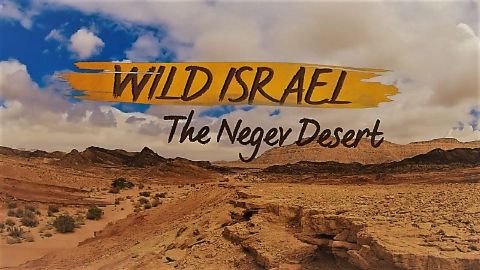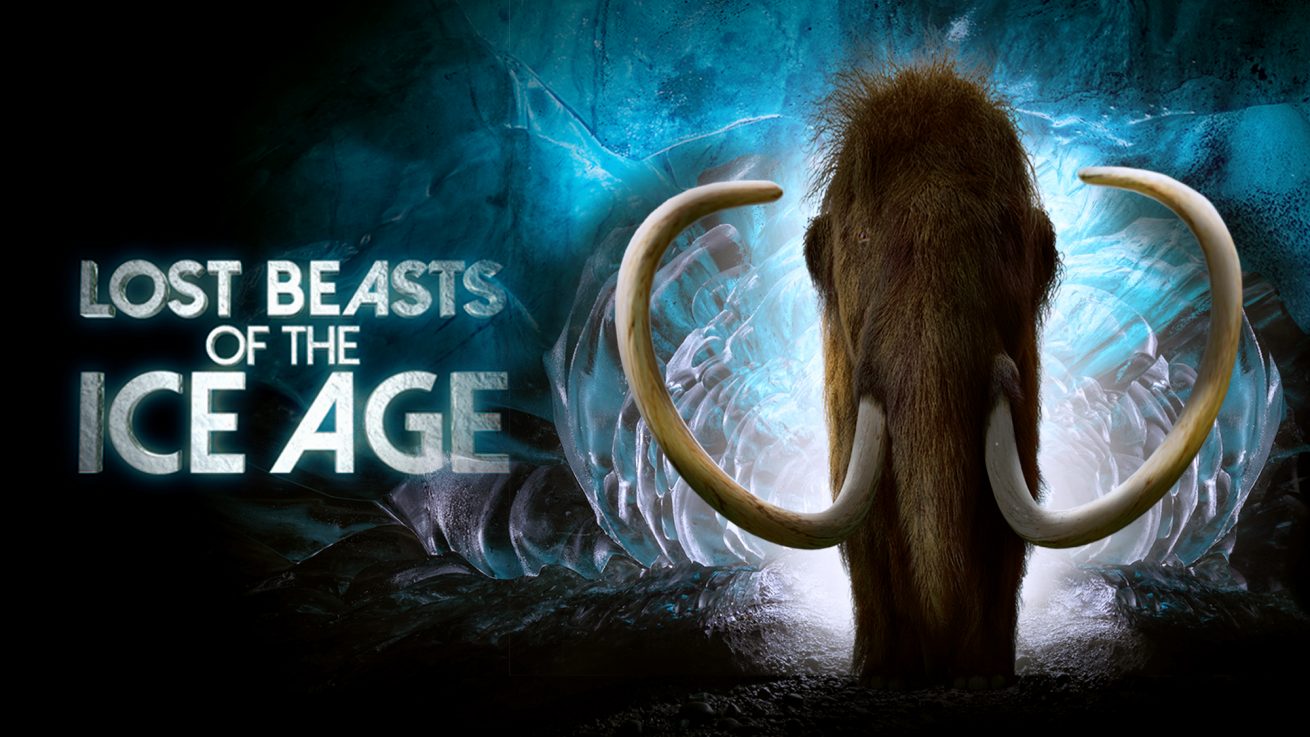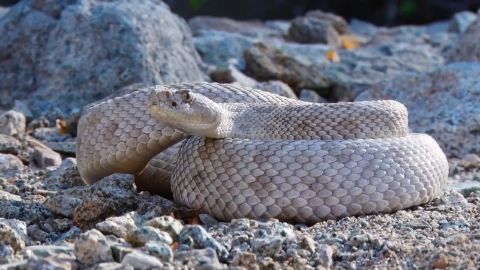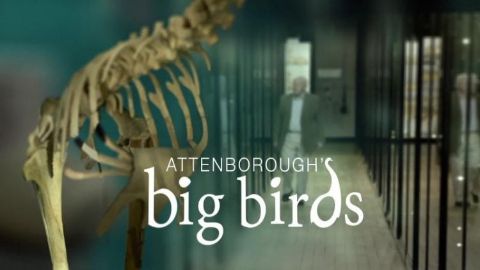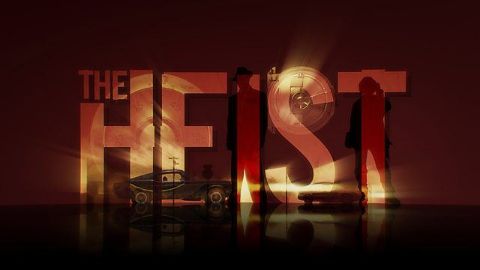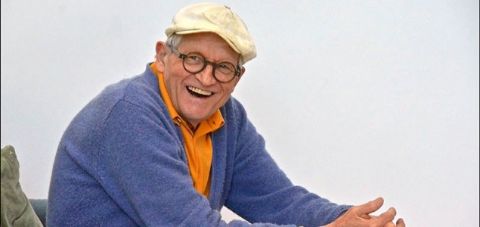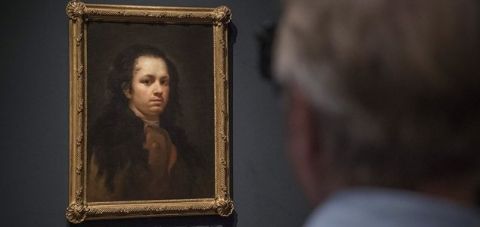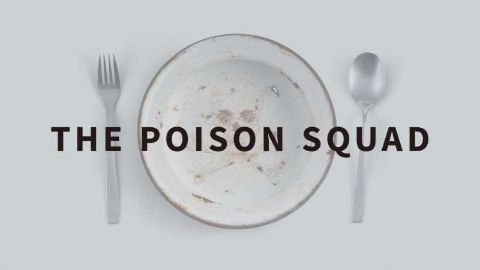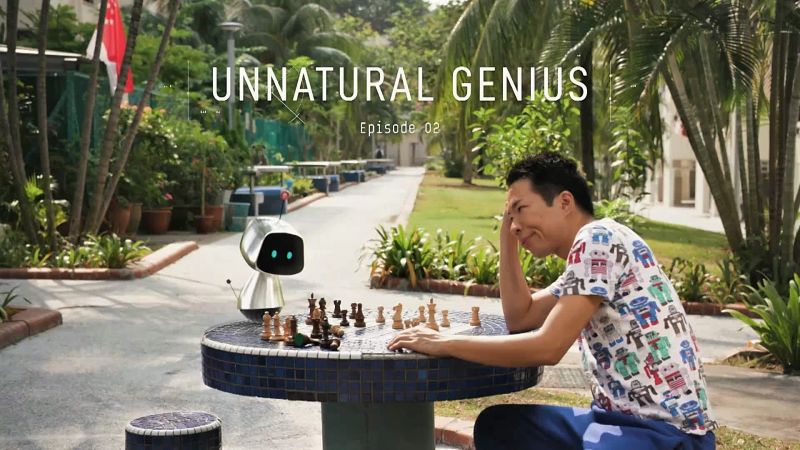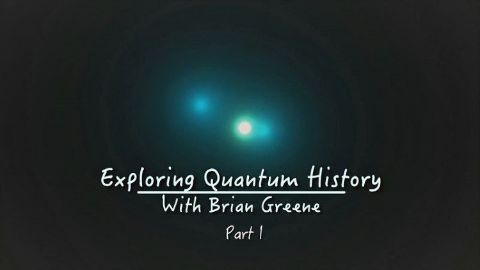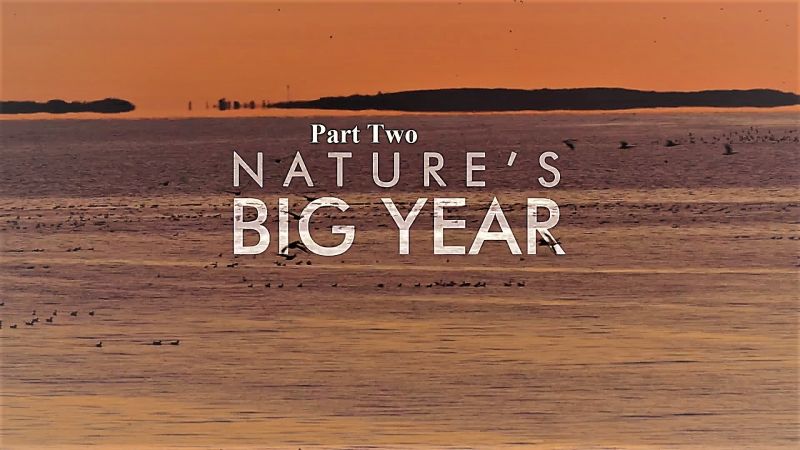Explore how heat waves affect the body, what levels of extreme heat we can survive, and what you can do to manage high temperatures.
The Messenger explores our deep-seated connection to birds and warns that the uncertain fate of songbirds might mirror our own. Moving from the northern reaches of the Boreal Forest to the base of Mount Ararat in Turkey to the streets of New York, The Messenger brings us face-to-face with a remarkable variety of human-made perils that have devastated thrushes, warblers, orioles, tanagers, grosbeaks and many other airborne music-makers. In ancient times humans looked to the flight and songs of birds to protect the future. Today once again, birds have something to tell us.
2015 • Nature
Tells the story of the Sinclair ZX Spectrum. This film goes into all the finer details of how and why the ZX Spectrum was created, what impact the computer had as well as the various versions that followed right the way through to the latest iteration of the system with the ZX Spectrum Next. Complete with interviews from industry legends.
2024 • Technology
Luminous tells the story of the first astronomer in history to publicly predict the near-future explosion of a star--will he be right? Others in the astronomical community are skeptical, and professional reputations hang in the balance. In production for five years, Luminous follows Larry Molnar's journey to test an unprecedented prediction, knowing that its success or failure will unfold squarely in the international spotlight.
2022 • Astronomy
When Apollo astronaut Gene Cernan stepped on the Moon in December 1972 he left his footprints and his daughter's initials in the lunar dust. Only now, over forty years later, is he ready to share his epic but deeply personal story of fulfillment, love and loss. Cernan's burning ambition carried him from a quiet Chicago suburb to the spectacular and hazardous environment of space, and ultimately, to the Moon. Five years in the making, The Last Man on the Moon unveils a wealth of rare archive material, and takes Cernan back to the launch pads of Cape Kennedy, to Arlington National Cemetery and to his Texas ranch, where he finds respite from a past that refuses to let him go.
2014 • Astronomy
The shocking story of Aum Shinrikyo, the doomsday cult that unleashed a deadly nerve gas in Tokyo's subway system in 1995. Founded by disillusioned yoga teacher Shoko Asahara, Aum transformed into a terrorist organization while Japan's police and media turned a blind eye. Featuring rare archival footage and an interview with one of Asahara's former high-ranking disciples.
2023 • People
The inside story of the tech entrepreneurs who created the social media app Twitter. At first the site grew on the back of celebrities who realised it offered them a direct way to communicate with fans. After going global, it seemed to be fulfilling the founders' dream of a digital utopia where all voices would be heard. But as hate speech and misinformation flooded the platform, the founders faced growing problems to control it - and the sale to Elon Musk in 2022 represented the end of their dream.
2025 • Technology
Explore Tulum, the final inhabited city of the Maya empire, where innovative archaeology and cutting-edge technology reveal the mysteries behind the collapse of one of Mesoamerica's greatest civilisations.
2023 • History
From battlefields and ancient swords to mighty castles and Durham cathedral, the rich, brutal story of William the Conqueror's journey from invader to ruler of England. Alice Roberts discovers who the Normans really were, tests a nearly thousand-year-old sword from William the Conqueror's time and wonders why there are so few women depicted in art from the time. Plus, Danielle George gets a brutal lesson in medieval 11th-century battlefield combat techniques, and Onyeka learns how William's coronation turned into a PR disaster.
S1E4 • Fortress Britain • 2022 • History
Tales of Cold War Britain, from nuclear threat to upper-class spies, eerie ghost bunkers and our very own Chernobyl. In Cold War military buildup Britain constructed bunkers for the civilian population and created its own nuclear missile defense. Professor Alice Roberts explores the UK's response to the threat of nuclear attack during the early years of the Cold War in the 1950s, when a network of upper-class spies began merrily sharing British military secrets with the Soviet Union. We also visit a nuclear-bomb-proof command center and inspect the legendary Avro Vulcan jet bomber.
S1E3 • Fortress Britain • 2022 • History
How Britain planned for a Nazi invasion - from tank traps and sticky bombs, to the Home Guard and tragic story of heroism. Alice Roberts looks for visible traces of Britain's rearmament in preparation for a German invasion. How did the Home Guard come about and what was the role of women in the offensive defense? We meet Indian-American Noor Inayat Khan, a special agent who worked with sabotage activities in German-occupied France, and hear her tragic story as one of the war's forgotten heroines. Alice learns about the deployment of the Home Guard, and Danielle travels to the Channel Islands, the only part of the British Isles under German control, to visit the only concentration camp built on British soil in Alderney. She explores life under occupation and visits the underground hospital Festung Guernsey.
S1E2 • Fortress Britain • 2022 • History
The story of Henry VIII's fear of Catholic Europe, told via his castles, cannons and spies. The first episode examines the surviving traces of Henry VIII's fear of invasion from Catholic Europe through physical reminders, including mighty castles and cannons, that survive to this day. At her headquarter in Walmer Castle, built in 1540 in Kent to defend the town against a French invasion, Alice gets her hands on a vast hoard of Tudor coins and a 500-year-old jousting scorecard, as she learns how Henry's greed and ambition led him to bankrupt the nation and lay the foundations for the modern secret service. Danielle visits Henry's mighty castle at Deal and witnesses the awesome power of the cannons built to defend England, while Onyeka gets within touching distance of the iconic Mary Rose.
S1E1 • Fortress Britain • 2022 • History
From space, Earth is a kaleidoscope. Turquoise plankton blooms trigger a feeding frenzy, China turns yellow with rapeseed flowers, and mysterious green lights appear in the ocean.
S1E3 • Earth from Space • 2019 • Environment
Dirt roads. Pickup trucks. Hip-hop? As the borders around country music shift, who decides what defines the popular genre, and who gets to be a star?
Horizon follows the story of Richard Gray and his remarkable recovery from a life-changing catastrophic stroke. The film shows the rarely seen journey back to recovery. Recorded by his documentary film-maker wife Fiona over four years, this film shows the hard work of recovery. Initially bed bound and unable to do anything, including speak, the initial outlook was bleak, yet occasionally small glimmers of hope emerged. Armed always with her camera, Fiona captures the moment Richard moves his fingers for the first time, and then over months she documents his struggle to relearn how to walk again. The story also features poignant footage delivered in a series of flashbacks, in which we see and hear Richard at his professional best. He was a peacekeeper with the United Nations, immersed in the brutal war in Sarajevo, Bosnia. We also hear from the surgeons and clinicians who were integral to Richard's remarkable recovery, from describing life-saving, high-risk reconstructive surgery to intensive rehabilitation programmes that push the former soldier to his limits.
Series premiere of a docudrama that chronicles the rebel tribes that brought down the Roman Empire. In the opener, An epic 700-year battle for freedom begins as the barbarians rise against Rome; Hannibal builds a rebel alliance and conquers the Alps; the shepherd Viriathus unleashes a wave of resistance to save his people from destruction.
Part 1 • Barbarians Rising • 2016 • History
Liz Bonnin delves in to the world of invention, revealing the people and technologies set to transform all our lives. She examines the conditions that are promising to make the 21st century a golden age of innovation and meets some of the world's foremost visionaries, mavericks and dreamers. From the entrepreneurs that are driving a new space race, to the Nobel Prize wining scientist leading a nanotech revolution, this is a tour of the people and ideas delivering the world of tomorrow, today.
Horizon • 2013 • Technology
For the animals in the polar regions, autumn means dramatic battles and epic journeys. Time is running out - the Arctic Ocean is freezing over and the sea ice is advancing at 2.5 miles per day around Antarctica. Polar bears gather in large numbers on the Arctic coast as they wait for the return of the ice. Soon, tempers fray and violent sparring contests break out. Meanwhile 2,000 beluga whales head for one special estuary, a gigantic 'whale spa' where they will thrash their snow-white bodies against the gravel and exfoliate. Inland, the tundra undergoes a dramatic transformation from green to fiery red. Here, musk ox males slam head-first into each other with the force of a 30mph car crash as they struggle to defend their harems. Frisky young caribou males play a game of 'grandma's footsteps' as they try to steal the boss's female. Down in Antarctica, Adelie penguin chicks huddle together in creches. When a parent returns from fishing, it leads its twins on a comical steeplechase - sadly there's only enough for one, so the winner gets the meal. Two months later and the chicks are fully feathered apart from downy Mohican hairdos - they're ready to take their first swim - reluctantly though, as it seems penguins are not born with a love of water! And with good reason - a leopard seal explodes from the sea and pulls one from an ice floe, a hunting manoeuvre that has never been filmed before. As winter approaches and everyone has left, the giant emperor penguin arrives and makes an epic trek inland to breed. The mothers soon return to the sea leaving the fathers to hold the eggs and endure the coldest winter on earth.
S1E4 • Frozen Planet • 2011 • Nature
The ways in which wild animals have adapted to survive in human population centres, from cobras in India hunting in houses, to macaques in Bali stealing mobile phones to barter with temple staff in return for food. Rhinos walk through the streets of Sauraha, Nepal, while in Australia, tawny frogmouths find streetlights useful in catching prey, but have to avoid being eaten by household cats.
S1E7 • Planet Earth III • 2023 • Nature
Covering more than half of Israel, the Negev Desert is a land of harsh extremes, one where flora and fauna must adapt to searing summers and bitter winters. Spend a year alongside some of its toughest inhabitants in their ongoing quests for survival.
S1E1 • Wild Israel • 2018 • Nature
Follows a team of international scientists including Dr. Tori Herridge, Paleontologist at the Natural History Museum in London, and Harvard Medical School Geneticist Professor George Church dig up frozen beasts in Belaya Gora, Siberia.
2019 • Nature
The penultimate instalment investigates the primates, whose defining characteristics are forward-facing eyes for judging distance, and gripping hands with which to grasp branches, manipulate food and groom one another. The programme begins in Madagascar, home to the lemurs, of which there are some 20 different types. Two examples are the sifaka, which is a specialised jumper, and the indri, which has a well-developed voice. Away from Madagascar, the only lemur relatives to have survived are nocturnal, such as the bushbaby, the potto and the loris. The others were supplanted by the monkeys and a primitive species that still exists is the smallest, the marmoset. However, Attenborough selects the squirrel monkey as being typical of the group. Howler monkeys demonstrate why they are so named their chorus is said to the loudest of any mammal and their prehensile tails illustrate their agility.
12/13 • Life on Earth • 1979 • Nature
Where would you go to find an enchanted underwater forest? How come some Mexican rattlesnakes have lost their rattle? And why does an Indian elephant look like its smoking cigarettes?
S1E18 • Nature's Strangest Mysteries: Solved • 2019 • Nature
Meet the big birds, a feathered family who have never flown a day in their lives! From ostriches to kiwis, these bizarre birds appear to be nature's greatest novelty act. How they came to be and how they continue to survive is a fascinating tale that has long captivated Sir David Attenborough. It is a story of dedicated dads, enormous eggs and a serious need for speed. And far from being the court jesters of the animal world, these flightless curiosities once nearly ruled the land.
Natural World • 2015 • Nature
This time it is the turn of the heist movie, with its unique combination of suspense and action. Whether it is the big bank job or netting a fortune in diamonds, why, asks Mark, do otherwise law-abiding audiences find themselves rooting for robbers and even killers? More than any other genre, the heist movie plays with our sympathies, encouraging us to identify with characters we would run a mile from in real life. From The Asphalt Jungle to Ocean's Eleven by way of The Italian Job and even The Wrong Trousers, Mark shows how recurring character types, such as the mastermind, and sequences like the planning scene and the getaway, draw us into the big score. And he demonstrates how recent hits like Inception, The Wolf of Wall Street and Baby Driver have pushed the conventions of the heist in thrilling new directions. At the box office, at least, crime really does pay.
Part 2 • Mark Kermode's Secrets of Cinema • 2018 • Creativity
Widely considered Britain's most popular artist, David Hockney is a global sensation with exhibitions in London, New York, Paris and beyond, attracting millions of visitors worldwide. Now entering his ninth decade, Hockney shows absolutely no evidence of slowing down or losing his trademark boldness. Featuring intimate and in-depth interviews with Hockney himself, this revealing documentary captures the voice of the artist over five years and focuses on two of his blockbuster exhibitions.
S2E1 • Great Art • 2018 • Creativity
Salvador Dali was art's greatest clown, but was he also one of its great geniuses? Journalist Alastair Sooke traces the life and work of the popular surrealist artist travelling throughout Europe and America. From his origins in turn of the century Spain, to his high jinx in New York in the 1970s, Sook reveals this artist's fascinating life story and explains the thinking behind and impact of his most famous works. Talking to Dali fans from Mighty Boosh comedian Noel Fielding to contemporary artist Jeff Koons, Sooke reveals the pervading influence of Dali and his brand of surrealism. Featuring testimonies from film giant Alfred Hitchcock and excerpts from the film Dali made with Walt Disney, Destino, as well as looking at contemporary advertising, this programme shows how the hand of Dali has touched almost every aspect of popular culture.
S1E4 • Modern Masters • 2010 • Creativity
Phillippe Parreno has radically redefined the exhibition experience. Rather than as a collection of individual works, Parreno sees an exhibit as a coherent whole and works in many different media including film, text, sculpture and drawing.
8 • Behind the Artist • 2016 • Creativity
Alastair Sooke champions pop art as one of the most important art forms of the 20th century, peeling back pop's frothy, ironic surface to reveal an art style full of subversive wit and radical ideas. In charting its story, Alastair brings a fresh eye to the work of pop art superstars Andy Warhol and Roy Lichtenstein and tracks down pop's pioneers, from American artists like James Rosenquist, Claes Oldenburg and Ed Ruscha to British godfathers Peter Blake and Allen Jones. Alastair also explores how pop's fascination with celebrity, advertising and the mass media was part of a global art movement, and he travels to China to discover how a new generation of artists are reinventing pop art's satirical, political edge for the 21st century.
2015 • Creativity
Discover Spain's celebrated artist with this cinematic tour de force based on the National Gallery's blockbuster exhibition Goya: The Portraits. The film uses the exhibition to look in depth at Goya's eventful life and, through extensive location footage and Goya's revealing letters, the film builds a fascinating portrait of the painter and the extraordinary world he painted.
S3E2 • Great Art • 2019 • Creativity
By the close of the Industrial Revolution, the American food supply was tainted with frauds, fakes and legions of new and untested chemicals, dangerously threatening the health of consumers. Based on the book by Deborah Blum, The Poison Squad tells the story of government chemist Dr. Harvey Wiley who, determined to banish these dangerous substances from dinner tables, took on the powerful food manufacturers and their allies. Wiley embarked upon a series of bold and controversial trials on 12 human subjects who would become known as the “Poison Squad.” Following Wiley’s unusual experiments and tireless advocacy, the film charts the path of the forgotten man who laid the groundwork for U.S. consumer protection laws, and ultimately the creation of the FDA.
American Experience • 2020 • Health
Enlai explores how natural intelligence inspires artificial intelligence. He meets A.I. that is trained to think like artists, musicians, doctors, and scientists, and he learns how A.I. can outsmart us
S1E2 • Becoming Human • 2020 • Technology
Theoretical physicist and best-selling author Brian Greene takes us on a journey through the discoveries of quantum physics. How is it that Newtonian mechanics gave way to the more complex and modern world of quantum mechanics?
S1E1 • Exploring Quantum History with Brian Greene • 2016 • Physics
A famous scientist wrote to the President of the United States, and the face of war, and our world, was changed forever. How and why did humanity develop a weapon capable of almost total destruction?
S1E9 • Butterfly Effect • 2016 • History
When humanity hits pause, nature reboots; scientists discover the surprising ways pandemic lock downs affected our planet.
S61E2 • The Nature of Things • 2021 • Environment
How does light escape from the sun? We take a journey from the centre of the sun, following the path of light. We witness its fiery birth from in the core, its 430,000 mile battle against gravity and magnetism, and its escape from the solar surface.
S3E1 • How the Universe Works • 2014 • Astronomy

